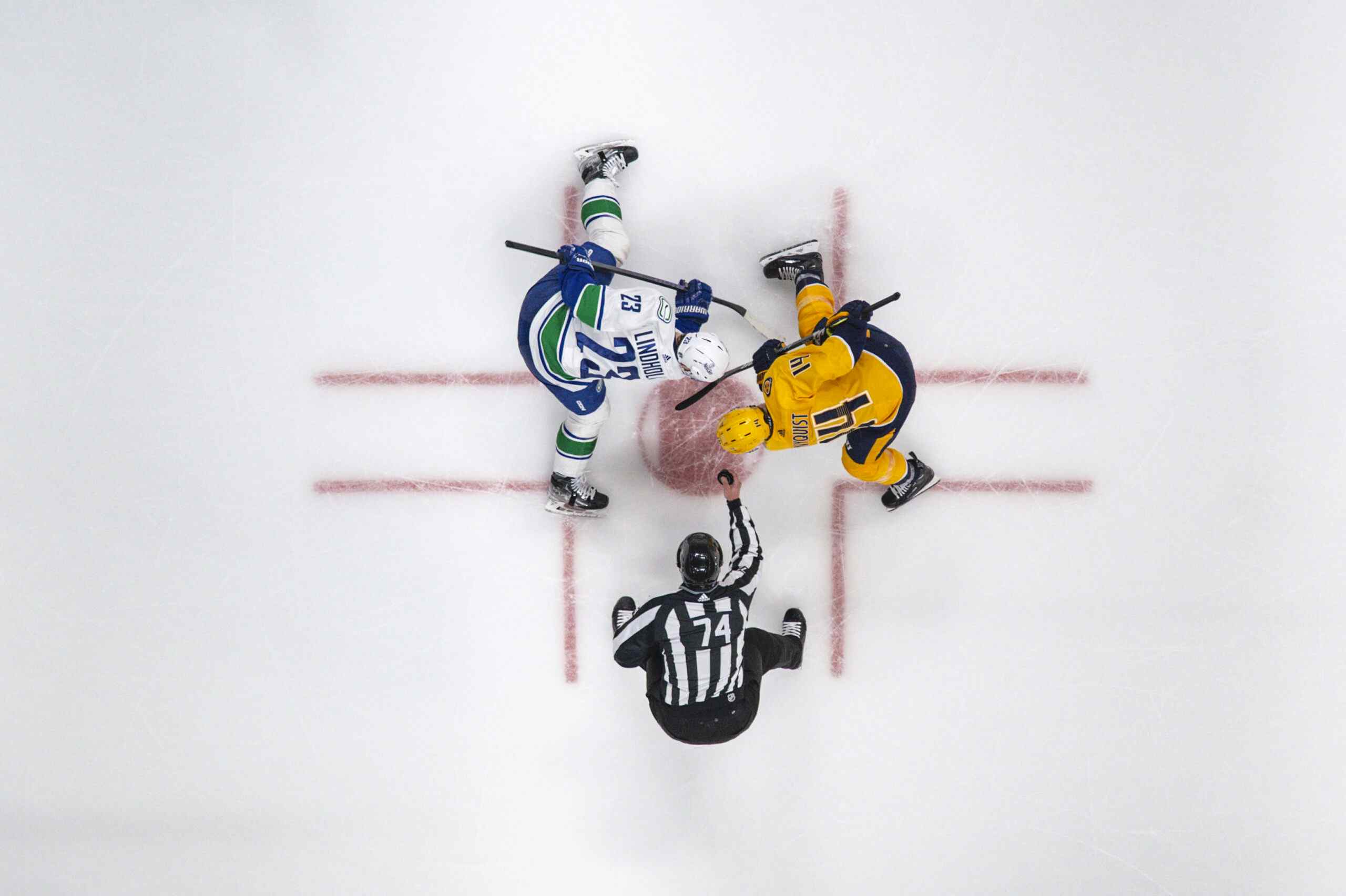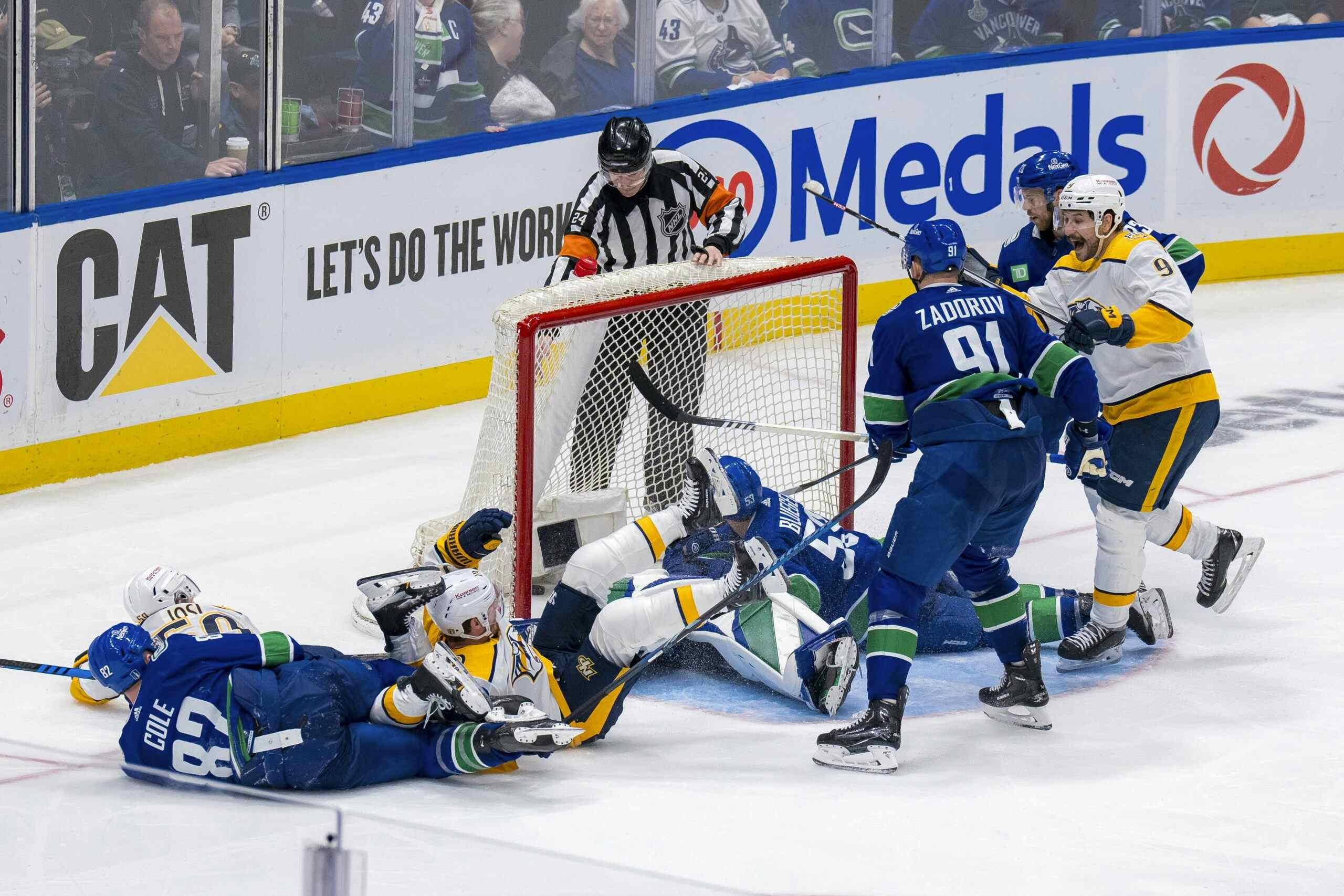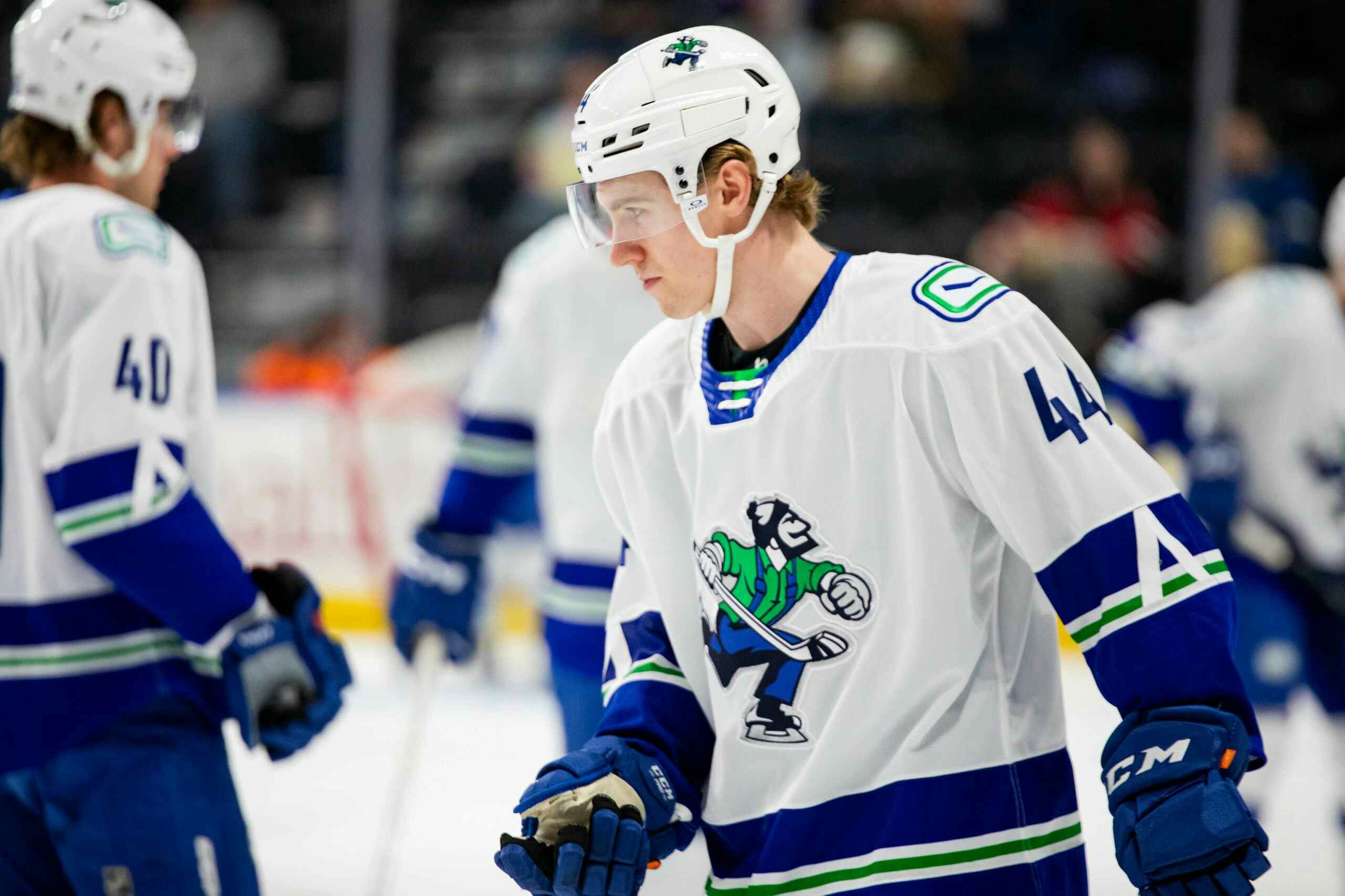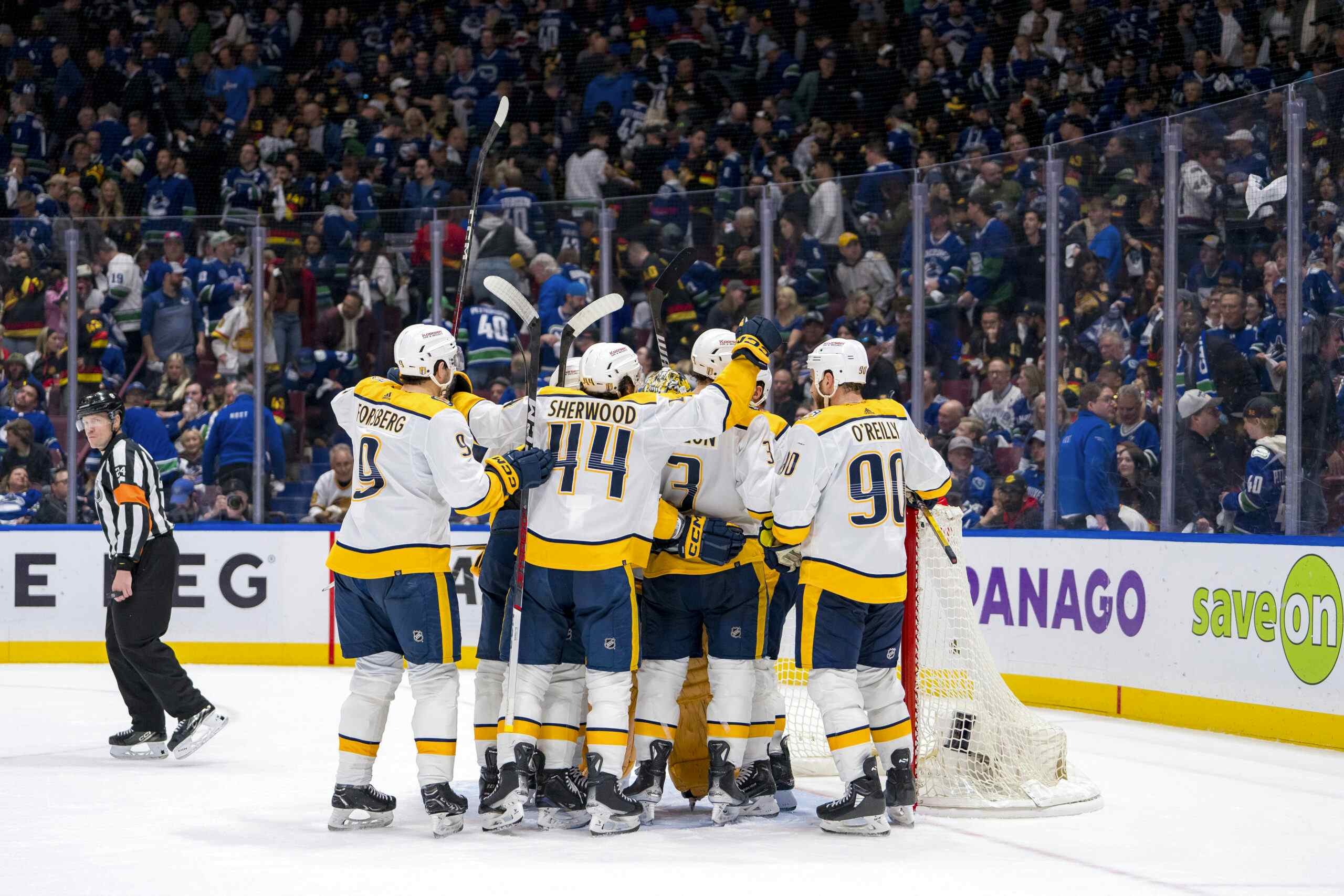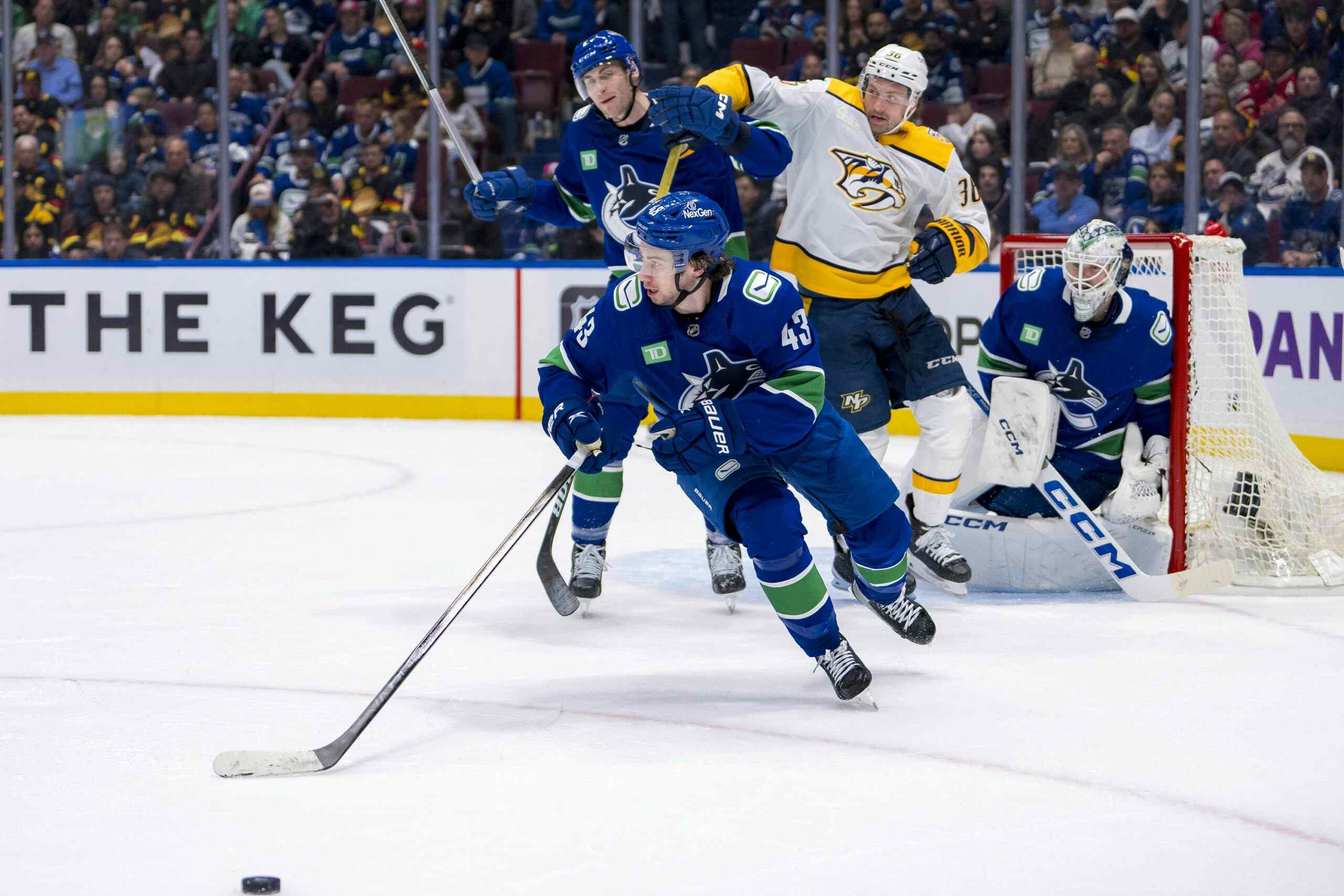Monday Mailbag: Who should you believe when it comes to the Judd Brackett situation? NCAA defencemen, and more

Another week, another mailbag. Let’s see what you wonderful people asked this week.
I feel like this is a good one to lead off with because I’ve gotten messages that lead me to believe there’s a misconception out there that Jackson was let go from Canucks Army, which couldn’t be further from the truth.
Jackson knew he wanted to step down and helped me extensively become confident enough to take over for him as Managing Editor. He was one of the best editors I’ve worked for and I’ve picked his brain as much as possible to learn how to make our contributors’ work look even better.
Now let’s get into the big questions of the week, which were mostly all about one man:
Yep. Judd Brackett broke the internet late Friday morning, after the Canucks announced they will be parting ways with their Director of Amateur Scouting at the conclusion of his contract on June 30th.
This is getting into a lot of he said vs he said between Brackett and Jim Benning. Benning spoke to media on Friday morning and told his side of the story, which is that Judd wanted more autonomy on things Jim just wasn’t willing to give up.
For the full list of things Benning said on that call, click here.
He later appeared on Sportsnet650 and explained that Judd wanted control over the first two picks the Canucks made, and that Benning just didn’t want to give that up, among other things.
That’s fair enough, too. After all, his name will be attached to these players if they succeed or falter, so it’s completely reasonable for a GM to have some pull on who he selects. The only problem is, those close to the situation, and supposedly Brackett himself, have said that’s not what kind of autonomy Brackett was looking for.
The thing that many close to the situation have said is that as the Director of the department, Brackett simply wanted autonomy on who he could hire and fire in his scouting department. After all, he is responsible for deploying these scouts and utilizing them to the best of their abilities to ensure that the Canucks can draft the best players possible.
If we line up the timelines and do some critical thinking, we know this relationship went sour at the 2019 Draft. Shortly after that draft, three scouts were let go. Was Judd not the one who let those scouts go? Was he not allowed to make personnel decisions when it came to his staff?
Brackett’s statement, when read carefully, leads you to believe that this is indeed the case.
But wait, who’s to say that any Director of Scouting in the NHL is given that kind of power? That’s the first thing that came to my mind, because if nobody else is, then a case could be made for Brackett’s ask being above industry standards. So I checked with people who are aware of the inner workings of amateur scouting departments across the league to see if this is industry standard.
The answers I got were all resounding yesses, and at the very least a Director of Amateur Scouting would have a great deal of oversight in this process. Again, Brackett’s message highlighting disagreements regarding staff personnel leads one to believe that he was not given this power.
Now we line that thinking up with what Ed Willes wrote yesterday afternoon, and the picture becomes a little more clear:
“A narrative has emerged that Judd Brackett sought complete autonomy for the Vancouver Canucks’ amateur scouting department and wanted to run the draft independent of general manager Jim Benning and assistant general manager John Weisbrod…Brackett was hardly a lone wolf who had to have things his own way. He understood collaboration. He understood chain of command. What he didn’t understand is critical decisions which were made involving his scouts without his input.That, at least, is Brackett’s take. He was also a Trevor Linden man and when Linden was fired after the 2018 draft, the scout lost a key ally. On that basis, maybe it’s understandable tensions would build between Brackett and Benning. The general manager wanted things run a certain way. Decisions were made with limited or no input from Brackett.As a result the scouting director decided he couldn’t work under Benning and Weisbrod and rejected a new contract. No one was surprised when the impasse reached an inevitable conclusion on Friday.”
You can read the rest of Willes’ story here.
This story, (perhaps, unfortunately) is far from over. New information will come out in the coming months, maybe years, and more truths surrounding what really led to Brackett’s dismissal will be revealed.
All we currently know is that both sides have given all the information they’re willing to regarding the situation.
For now.
Wow, I almost forgot we have more questions this week that aren’t just about Judd Brackett!
Rasmus Ristolainen is an interesting player. He’s big, skilled, and he wants to get the hell out of Buffalo.
Here are the current headlines you’ll find when you google the Finnish defender’s name.
“Ristolainen: I have never been part of a winning culture”
“RISTOLAINEN READY IF TRADE COMES”
“Rasmus Ristolainen expects to be ‘one of the first’ traded if Sabres make changes”
I wonder if a trade could be coming in the near future?
If he’s indeed available, the Canucks would be foolish not to at least check in on the Sabres’ asking price. They need help on the blueline, and if they lose Tanev in free agency, the $5.4 million cap hit that Ristolainen carries for the next two seasons becomes more palatable.
As for acquisition cost? A big, skilled, and young right-handed defenceman won’t come cheap. When you look at the Canucks’ moveable assets with the most value, the names Jake Virtanen and Tanner Pearson are the main ones that come to mind. Maybe Thatcher Demko? The problem with that is there’s just no reason to believe that the organization is looking to move on from Demko. The Canucks would have to throw together a King’s ransom in the form of assets they just don’t possess, so a trade for Ristolainen would be hard to accomplish.
I think if you have the chance to replenish the prospect cupboards with a player like Lafreniere or Byfield, you 100% take it. To add a player of these guys’ calibre on an entry-level contract while you’re already competitive is a privilege that many teams would envy. I personally wouldn’t trade either of those picks for Eichel.
Elias Pettersson and Quinn Hughes are likely going to command north of $10 million on their next deals, so adding an additional $10 million with Eichel as opposed to less than $1 million for three seasons during Pettersson and Hughes’ primes — well, you do the math.
This is a great question. It’d be ideal if the Canucks had a ton of cap space, but that’s just not the reality of the situation. So instead of crying over spilled milk, let’s look at how they can address the defence.
Signing college free agents has given the club Chris Tanev, Troy Stecher, and Brogan Rafferty. Because these players sign low price contracts, this won’t hurt the team’s cap hit. Matt Kiersted is a name that scouts have told me is a free agent NCAA defenceman the Canucks should be looking to target.
The University of North Dakota defenceman put up 29 points in 32 games this season, and could be a name to watch.
The only problem is, NCAA free agents are rarely ready to step in right away and be effective at the NHL level. The Canucks are looking to turn into a legitimate contender in the near future, and college free agents are almost certainly not going to be able to do that.
So that brings us to trading for help on the back end. The Canucks have some depth at the forward position, and with players like Kole Lind, Zack MacEwen, Vasili Podkolzin, and Nils Hoglander waiting in the wings, it makes the most sense to move on from some forwards in order to sharpen up the defence corps.
But again, the original question was “without creating another area of weakness”. To that, I say I don’t really see a way that they can. It’s almost certainly going to have to be a trade and moving out one of Podkolzin or Hoglander weakens the team’s prospect pool dramatically. There just aren’t many options currently.
I’ll close out with this one because we now have confirmation on what happens to the Canucks’ first-round pick that they traded away in the JT Miller trade.
It’s simple, really. If the Canucks beat the Wild in the play-in round, they give up this year’s pick and keep next year’s first-rounder.
If they lose, however, the Canucks’ will keep this year’s pick, which will be entered into the NHL’s improvised draft lottery format, where the Canucks will have a chance — albeit a slim one, to get the first overall selection.
That wraps up this week’s mailbag! To ask a question in future mailbags, be sure to keep an eye out for my weekly tweet on Twitter @Quadrelli!
Recent articles from David Quadrelli
- Instant Reaction: Canucks lose tightly-contested affair vs. Predators, series heads to Nashville for game six
- Instant Reaction: Brock Boeser scores late hat trick and Elias Lindholm scores OT winner as Canucks take game four in Nashville
- Arturs Silovs could start for Canucks in game four as Tocchet hints at game-time decision

